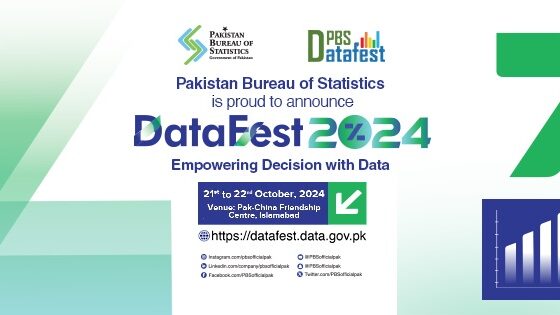Pakistan’s e-commerce landscape has witnessed a meteoric rise in recent years, fueled by the COVID-19 pandemic and government initiatives. One of the key figures driving this transformation is Badar Khushnood, a seasoned entrepreneur with a deep understanding of the industry.
Badar Khushnood, a prominent figure in Pakistan’s technology landscape, has played a pivotal role in shaping the country’s digital ecosystem. From his early days at Google to his current leadership of the technology entrepreneurship program at LUMS, Khushnood’s journey has been marked by innovation, mentorship, and a commitment to fostering a vibrant startup ecosystem.
In a recent episode of TechDrive with Imran and Aqsa, Khushnood shared insights into the growth of e-commerce in Pakistan and the challenges and opportunities it presents.
The Pandemic’s Impact
The pandemic accelerated the adoption of e-commerce in Pakistan, as consumers turned to online shopping for essential goods and services. Khushnood noted a significant increase in online transactions and a surge in interest from retailers looking to expand their digital presence. “Before the pandemic, we had to educate people about the benefits of e-commerce,” he explained. “Now, people are asking us how to do it and what opportunities are available.”
Government Initiatives and Policy Changes
The government has played a crucial role in supporting the growth of e-commerce in Pakistan. The National E-commerce Council and the e-commerce policy have introduced several initiatives, including regulatory reforms, improved logistics infrastructure, and incentives for online businesses. Khushnood praised the government’s efforts, stating that they have created a favorable environment for e-commerce to thrive.
Challenges and Opportunities
Despite the significant progress, the e-commerce industry in Pakistan still faces certain challenges. Logistics issues, payment concerns, and a lack of e-commerce expertise among sellers remain key obstacles. Khushnood emphasized the importance of addressing these challenges to ensure the sustainable growth of the sector.
However, he also highlighted the immense opportunities that e-commerce presents. With a large and growing population, Pakistan has a vast market for online products and services. The increasing penetration of smartphones and internet connectivity is further driving the growth of e-commerce.
Future Outlook
Khushnood expressed optimism about the future of e-commerce in Pakistan. He believes that the industry will continue to expand, driven by technological advancements, government support, and increased consumer adoption. Fintech solutions, such as digital payments and buy now, pay later (BNPL) options, will play a crucial role in enhancing the customer experience.
As Pakistan’s e-commerce sector matures, it is poised to contribute significantly to the country’s economic growth and create new opportunities for businesses and consumers alike. With the continued support of the government and industry stakeholders, Pakistan can establish itself as a leading e-commerce market in the region.
A Decade of Impact
Khushnood’s contributions to Pakistan’s digital landscape began over a decade ago when he worked at Google. During his time there, he spearheaded initiatives like Google Maps meetups and tweetups, introducing innovative concepts to a market that was still unfamiliar with such digital gatherings. He also co-founded the Pakistan Blog Awards with Selena, recognizing and promoting the country’s burgeoning blogging community.
Nurturing Startups: The Nest IO Story
One of Khushnood’s most significant achievements was the co-founding of Nest IO, a private incubation cell supported by Google. Nest IO played a crucial role in laying the foundation for Pakistan’s incubation ecosystem, providing startups with the resources and mentorship they needed to succeed. Khushnood’s involvement in Nest IO demonstrated his early recognition of the potential of startups and his commitment to supporting their growth.
Education and Entrepreneurship: A Powerful Combination
Khushnood’s recent role at LUMS has further solidified his position as a leader in Pakistan’s technology ecosystem. He has spearheaded the creation of a technology entrepreneurship program, the first of its kind in the country. This program aims to equip students with the skills and knowledge necessary to thrive in the digital age, combining a fast-track MBA with a strong foundation in technology.
Challenges and Opportunities in Pakistan’s Tech Ecosystem
While Pakistan’s tech ecosystem has witnessed significant growth in recent years, Khushnood acknowledges the challenges that remain. He highlights the lack of availability of specialized talent, the need for more supportive policies, and the importance of fostering a culture that encourages entrepreneurship. Khushnood emphasizes the need for government policies that are tailored to the specific needs of the tech sector, rather than applying a one-size-fits-all approach.
Looking Ahead: A Bright Future for Pakistan’s Tech Ecosystem
Despite the challenges, Khushnood remains optimistic about the future of Pakistan’s tech ecosystem. He believes that the country has the potential to become a major player in the global technology landscape. By investing in education, fostering innovation, and creating a supportive policy environment, Pakistan can position itself as a hub for startups and technological advancements.








